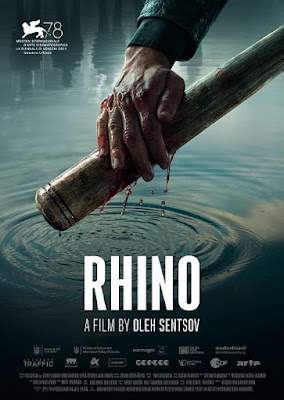Everyone thinks Canadians are always mild-mannered, but they have had plenty of violent gangsters. You just can’t mention them anymore, or Justin Trudeau will send you to jail. While there was still Canadian freedom of speech, Edwin Alonzo Boyd’s crimes were chronicled in Citizen Gangster and Vincent Cassel portrayed the notorious French import in Mesrine: Killer Instinct. Donald Lavoie’s biopic came in just under the wire. He killed a lot of people for his Quebecois gang, but even he has trouble whacking his own brother in Raymond St-Jean’s Dusk for a Hitman, which releases Friday on VOD.
Lavoie has long been estranged from his drunken father, but he somehow tolerates his messed-up brother Carl. Even though he has a wife and young daughter, he still considers Claude Dubois and the Dubois gang “like family.” That will be a mistake.
Usually, Lavoie is the one executing unsuspecting gang-members Dubois deems liabilities. However, Lavoie (not to be confused with the accomplished Austrian School economist, Don Lavoie) is in for a rough patch. First, due to bang-bang circumstances, he and his questionable partner kill a witness in an especially gruesome manner. Then his deadbeat brother starts making trouble for him. To make matters worse, organized crime investigator Roger Burns keeps coming around, asking if he wants to have a friendly chat.
Dusk for a Hitman is a super-grungy late-1970s-early-1980s period gangster movie, but it also has some style. St-Jean’s screenplay, co-written with Martin Girard, is pretty predictable, but in the way of almost every other hitman and mobster movie.
Even though Eric Bruneau has frequently worked with French Canadian auteurs like Xavier Dolan and Denys Arcand, he does not well-established image with most American audiences, but that serves the film well in Dusk. He definitely puts the “anti” in antihero with his more-than-slightly unhinged lead performance.


































